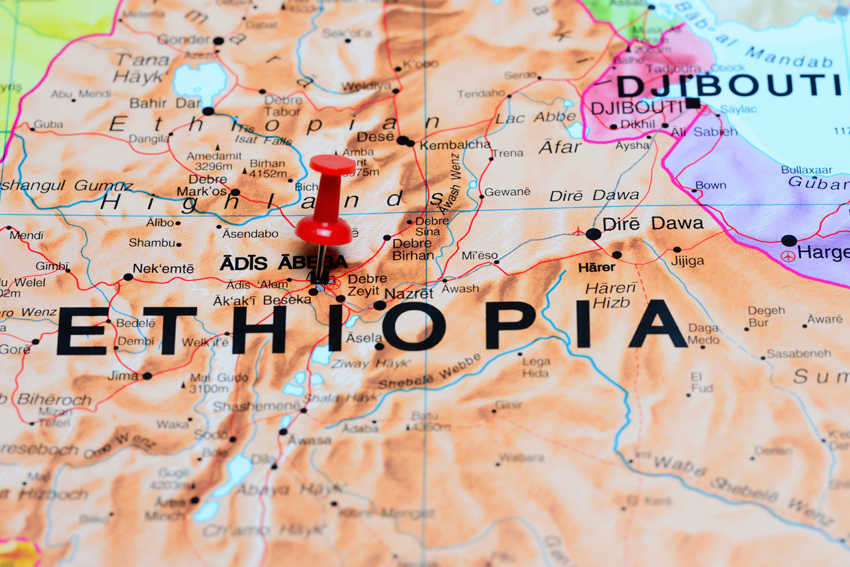The private sector is being sought by the government as a partner of development due to its expertise, market-focused approaches, experience, and technological innovation

The Ethiopian government has made significant advances through its first five-year Growth and Transformation Plan (GTP), and now with its second (GTP II) under way it is making a stronger push for private sector participation to diversify the economy from its heavy agriculture reliance toward an industry-led nation.
A raft of legal frameworks, policies and incentives is being created by the government to steer the country into an enterprising future. Infrastructure is particularly encouraged. For example, at least 11 industrial parks across the country are planned to be built and operational by the end of 2017. And the government is upgrading road, rail and air services at key logistical locations.
Prime Minister Hailemariam Desalegn recently stated that construction of four integrated agro-industrial parks, located in rural areas, would begin in September, which would take four years to complete and cost some $1.5 billion.
“Our society is mainly agriculture dependent,” comments Yehuala Gessesse, President of Abay Bank. “Smallholder farmers’ income and commercial farming is growing, and we believe there are a lot of opportunities in that.”
Fassil Taddesse, CEO of Kebire Enterprises, adds, “Ethiopia has enough land to produce cotton in a size equal to Pakistan, which is the fourth producer in the world.”
Adding value to Ethiopia’s dominant agriculture sector is vital to its future and holds immense potential for investors. “Instead of exporting primary commodities, if Africa transforms itself into processed agricultural commodities, then agriculture could be the next oil,” states Jemal Ahmed, Managing Director of Horizon Plantations.
“Thanks to the commitment from the government we have been exporting semi-processed items for many years, and now we are moving towards exporting finished leather products,” says Yigzaw Assefa, Managing Director of Bahirdar Tannery. “To that effect, many companies are joining us in our industrial parks to produce shoes or other finished goods. They are already exporting those goods to America, Europe and Asia. We are also starting to develop our dairy and meat industry. Our cattle population, the price and quality of our raw materials and labor cost, the political stability, our easily trainable manpower makes Ethiopia the perfect choice for foreign direct investment (FDI). Our government is highly committed to offering incentives for foreigners to invest in manufacturing and take part in our industrialization.”
Efforts to raise awareness of the country’s potential internationally are being ramped up to build on the momentum of rising levels of FDI in recent years. Ethiopia was the eighth-largest recipient of FDI projects in Africa, up from being in 14th position in 2013. Furthermore, FDI has a striking impact on job creation – a key element of raising living standards. Forbes reports that although the 32 projects launched there last year accounted for only 4.4% of the African total, they provided an incredible 18.5% of FDI jobs in Africa.
In addition to providing employment, private sector enterprises are also bringing social programs raising education, health, and living standards. “Human capital is the driving force to the development of our country, by developing our human capital we can achieve our vision,” comments Araya Gebre Egziabher, President of Wegagen Bank.
The banking sector is extending its reach as employment and education levels rise, and new services are needed, particularly in rural areas. “Mobile banking will become prominent means to reach the public as there is a huge number of telecom users here in our country. But we are still aggressively working to scale up the number of branches as there is a large unbanked population,” says Mulugeta Asmare, President of the Bank of Abyssinia.
And at United Bank, President Taye Dibekulu adds, “We have introduced agent banking to make financial services accessible for the disadvantaged people.”
“The government has a huge responsibility to fill the gap where the private sector is not ready or willing to come in. That is the principle we are following,” says Prime Minister Desalegn. “Some say [Ethiopia is having] a state-led economic growth, we say: it is a private-led economic growth, but [in certain areas] the private sector was not able to go there so we had to intervene and fill the gap. But we are not the engine of growth, that role belongs to the private sector.”
0 COMMENTS